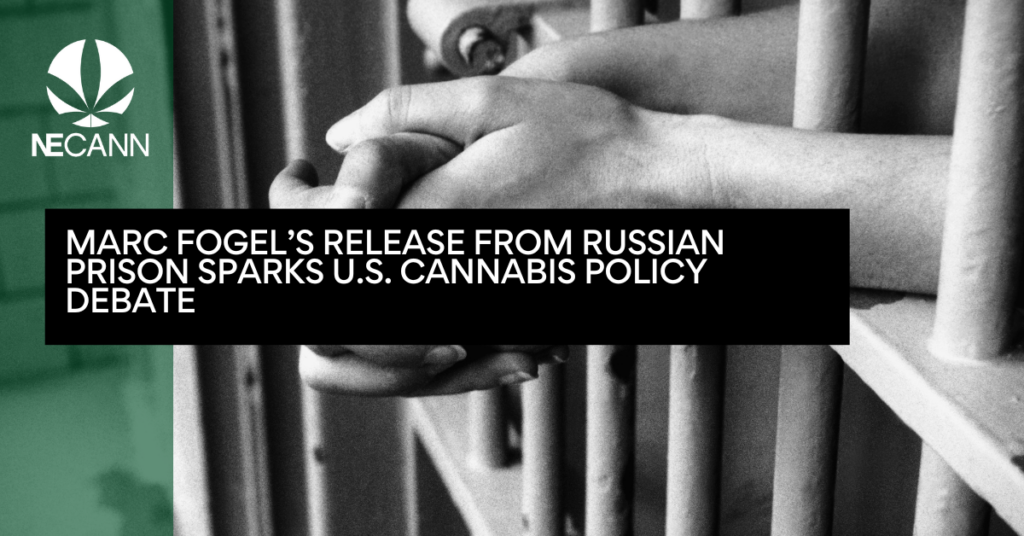Marc Fogel, an American teacher imprisoned in Russia for possessing medical cannabis, was welcomed at the White House by President Donald Trump and prominent GOP leaders on Tuesday. While his release was celebrated as a diplomatic victory, the underlying issue of his conviction—a charge of possessing cannabis he lawfully obtained as a medical marijuana patient in Pennsylvania—has led to renewed discussions about U.S. cannabis policies.
Fogel’s case gained international attention after he was sentenced to 14 years in a Russian prison for “drug smuggling” due to possessing a half-ounce of cannabis. He had been using the cannabis as an alternative to opioids for pain management. Following months of advocacy and calls from lawmakers, the U.S. State Department designated him as “wrongfully detained” and negotiated his release as part of a prisoner swap.
At his White House reception, several key GOP figures, including House Speaker Mike Johnson (R-LA) and Secretary of State Marco Rubio, celebrated his return. However, their support for Fogel’s release contrasts with their stance on U.S. cannabis policies. Johnson has consistently opposed marijuana reform, including banking access and research into cannabis, while Rubio has strongly opposed federal legalization efforts.
While Fogel’s supporters have praised the diplomatic efforts to secure his freedom, many have pointed out the hypocrisy of celebrating his return while continuing to support federal cannabis prohibition. Advocates, including Morgan Fox from NORML and Jason Ortiz from the Last Prisoner Project, emphasized the need for similar efforts to secure the release of U.S. citizens incarcerated for cannabis-related offenses at home.
Fox remarked, “While we are glad to see policymakers like Speaker Johnson celebrating Marc’s homecoming, their prohibitionist hypocrisy to continue to keep Americans in the U.S. locked behind bars for cannabis does not go unnoticed.”
Fogel’s case highlights the disparity between the treatment of U.S. citizens imprisoned abroad for cannabis and those still serving time in U.S. prisons under federal cannabis laws. Advocates urge lawmakers to take stronger action in reforming U.S. cannabis policies to ensure justice for those still incarcerated for non-violent cannabis offenses.
As the debate continues, both Trump and Biden have expressed some support for cannabis reform, but advocates are calling for more comprehensive action to deschedule cannabis and provide relief for those still imprisoned in the U.S.
Stay informed with daily updates on cannabis business news by subscribing to our newsletter.




